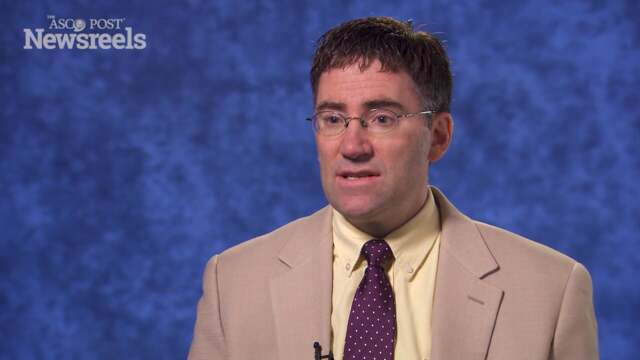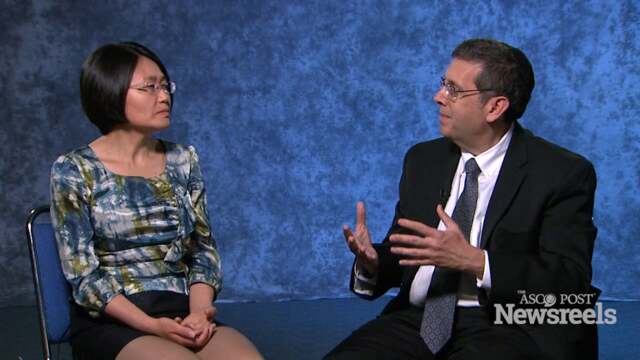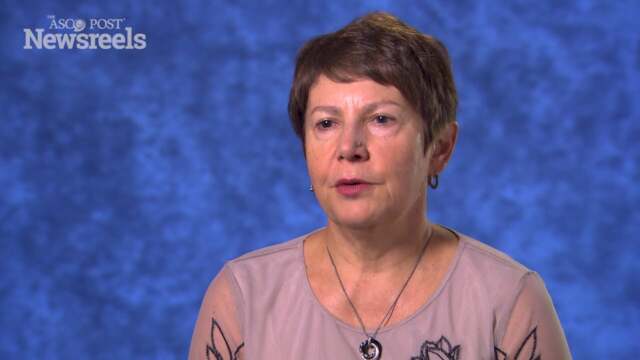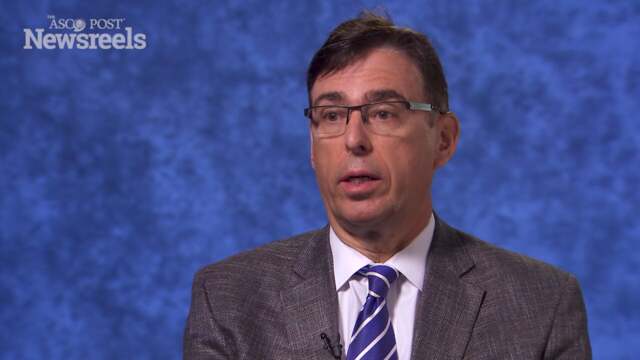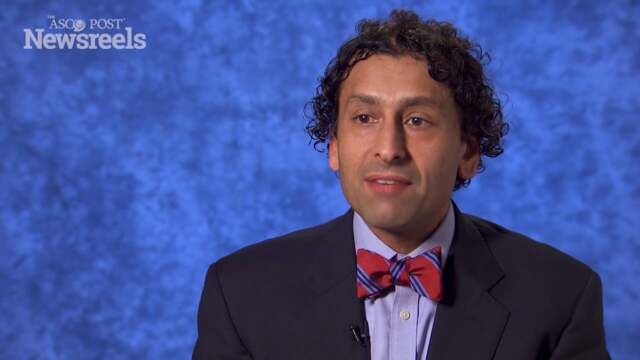Gerard Morton, MD, on GU Highlights: Expert Perspective
2017 ASTRO Annual Meeting
Gerard Morton, MD, of Sunnybrook Odette Cancer Centre, summarizes a session that included discussion of late toxicities of radiotherapy for locally recurrent prostate cancer; using chemotherapy instead of radiation in early-stage seminoma; radiotherapy vs surgery plus radiotherapy in Gleason score 9–10 prostate cancer; and an analysis of the IROCK study on kidney cancer (Abstracts 1, 1089, 282, 330).
Christopher R. Kelsey, MD, of Duke University Medical Center, discusses reducing the radiation dose from 30 Gy to 20 Gy for patients with diffuse large B-cell lymphoma. Phase II findings show this approach may be effective in light of improved systemic treatment and better chemotherapy response assessment (Presentation 298).
Shulian Wang, MD, of the National Cancer Center in Beijing, and Benjamin Movsas, MD, of the Henry Ford Health System, discuss study results on the use of hypofractionated radiation therapy after mastectomy for the treatment of high-risk breast cancer (Abstract PL01).
Maria Werner-Wasik, MD, of Thomas Jefferson University Hospital, summarizes a session on NSCLC that included discussion of a quality-of-life trial on optimizing treatment; chemotherapy and radiotherapy in advanced disease; a comparison of standard- vs high-dose conformal chemoradiotherapy; and long-term results on a comparison of two stereotactic body radiation therapy schedules in inoperable stage I disease (Abstracts 223, 224, 227, 33).
Marcus E. Randall, MD, of the University of Kentucky, discusses phase III study findings on pelvic radiation therapy vs vaginal cuff brachytherapy followed by paclitaxel/carboplatin chemotherapy in patients with high-risk, early stage endometrial cancer (Abstract LBA1).
Bhishamjit S. Chera, MD, of the University of North Carolina, discusses quantification of human papillomavirus 16 in circulating tumor DNA during de-intensified chemoradiation therapy for favorable-risk HPV-associated oropharyngeal squamous cell carcinoma (Presentation 92).
